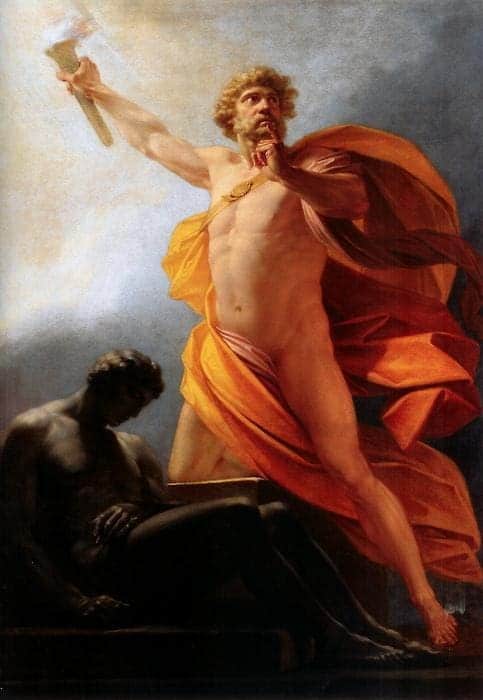
Throughout mythology and literature, certain figures stand out as rebels who challenge authority and bring enlightenment to humanity. Two of the most well-known are Lucifer from Christian tradition and Prometheus from Greek mythology. Though they come from different cultures, their stories share remarkable similarities. Both figures defy divine power, suffer severe punishment, and symbolize the pursuit of knowledge and freedom.
Defying Divine Authority Lucifer and Prometheus

Lucifer and Prometheus both rise against supreme beings. In Christian tradition, Lucifer, once an angel, refuses to serve God and leads a rebellion. His defiance results in his fall from Heaven, casting him into Hell. In Greek mythology, Prometheus defies Zeus by stealing fire and giving it to humanity. This act directly opposes Zeus’s will, challenging his dominance over both gods and mortals.
Their defiance stems from a desire for autonomy and a belief in the value of knowledge. Lucifer seeks independence, rejecting divine rule. Prometheus, on the other hand, fights for human progress, believing that mortals deserve wisdom and technology. In both cases, these figures disrupt the established order in pursuit of their ideals.
Bringing Knowledge to Humanity Lucifer and Prometheus
Both figures serve as bringers of knowledge, often at great personal cost. Lucifer, associated with the “light-bringer” or “morning star,” represents enlightenment and free will. Many literary interpretations, such as John Milton’s Paradise Lost, portray him as a tragic hero who offers humans the ability to think for themselves.
Prometheus directly gifts humanity with fire, a symbol of technology, civilization, and intellectual awakening. His actions enable humans to develop skills, create art, and build societies. Without fire, progress remains impossible. In this way, Prometheus mirrors Lucifer’s role in fostering human independence and self-determination.
Suffering as Punishment
For their defiance, both figures face harsh consequences. Lucifer endures eternal damnation in Hell, cast away from divine grace. His suffering becomes a warning to those who challenge authority. Prometheus suffers a brutal fate as well. Zeus binds him to a rock where an eagle perpetually eats his liver, only for it to regenerate daily. His agony continues until Hercules eventually frees him.
Despite their suffering, neither figure repents. Their punishment does not break them; instead, it solidifies their legacy as symbols of resistance. Their stories remind us that challenging power often comes with pain, but it also brings transformation.
Symbols of Rebellion and Free Thought
Lucifer and Prometheus embody the struggle for knowledge and autonomy. Over time, thinkers, writers, and revolutionaries have drawn inspiration from their defiance. Romantic poets, Enlightenment philosophers, and modern storytellers have reimagined them as champions of free will and intellectual pursuit.
These figures challenge us to question authority and seek truth, no matter the cost. They remind us that progress often arises from rebellion and that the quest for knowledge is both noble and dangerous.
Conclusion
The stories of Lucifer and Prometheus continue to captivate us because they reflect fundamental human struggles. They challenge divine rule, bring wisdom to humanity, and endure immense suffering. Their legacies live on as powerful symbols of defiance, enlightenment, and the unyielding pursuit of freedom. As long as people strive for knowledge and resist control, the tales of these fallen rebels will remain relevant.

